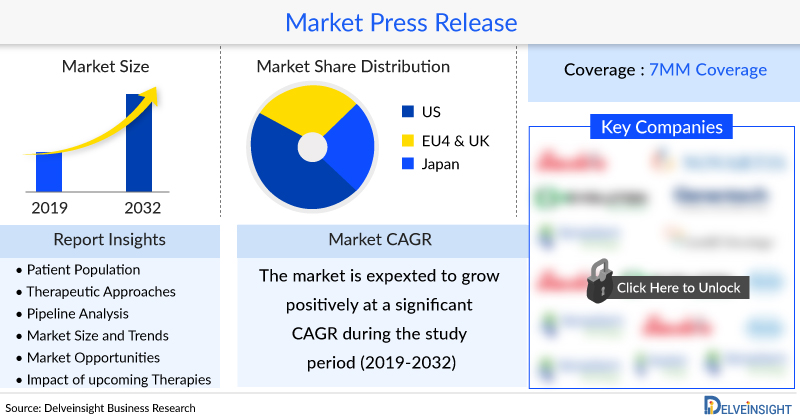Parkinson's disease, a progressive neurodegenerative disorder, affects millions of people worldwide, primarily causing motor symptoms such as tremors, rigidity, and bradykinesia. Despite advancements in Parkinson's disease treatments over the years, including medications like levodopa and deep brain stimulation, these approaches often fail to halt disease progression. However, emerging cell and gene therapies offer hope for transforming the landscape of Parkinson's disease treatment by potentially targeting the root causes of the disease rather than just alleviating symptoms.
Here are five emerging therapies in Parkinson's disease clinical trials that could significantly shape the future of Parkinson's disease treatment:
1. Gene Therapy for Dopamine Replacement
One of the most promising approaches in Parkinson’s disease treatment is gene therapy aimed at replacing or enhancing the production of dopamine. In Parkinson's, the loss of dopamine-producing neurons is the key factor behind the motor symptoms. Researchers are exploring viral vectors to deliver genes that can either provide a continuous supply of dopamine or restore the function of damaged neurons.
- Recent Developments: Companies like Axovant Gene Therapies are conducting Parkinson's disease clinical trials on gene therapies that use viral vectors to introduce the gene for AADC (aromatic L-amino acid decarboxylase), a crucial enzyme in dopamine synthesis.
- Potential Impact: This approach could restore normal dopamine levels in the brain, offering long-term symptom relief without the need for constant medication.
2. Stem Cell-Based Therapy for Neuronal Regeneration
Stem cell therapy is another emerging treatment showing significant promise in Parkinson's disease. The goal is to replace the damaged dopaminergic neurons that are lost in Parkinson's with new, healthy neurons generated from stem cells.
- Recent Developments: Companies like Neuralstem and StemCells, Inc. are developing stem cell therapies that involve implanting dopamine-producing cells derived from induced pluripotent stem cells (iPSCs) or embryonic stem cells. Clinical trials are underway to test the efficacy and safety of these stem cell-based approaches.
- Potential Impact: This treatment could potentially slow or even reverse disease progression by replacing the damaged neurons and restoring normal brain function.
3. Gene Editing Using CRISPR to Target Parkinson’s Disease Mutations
Gene editing techniques, particularly CRISPR-Cas9, are rapidly advancing in the field of Parkinson's disease treatments. CRISPR technology allows for precise editing of the genetic material, which could be used to correct genetic mutations associated with inherited forms of Parkinson's disease or enhance cellular function in the brain.
- Recent Developments: Early-phase Parkinson's disease clinical trials have been investigating the use of CRISPR to modify the genes responsible for protein accumulation (like alpha-synuclein) or other genetic mutations tied to Parkinson’s.
- Potential Impact: This technique has the potential to directly address the underlying genetic causes of Parkinson’s disease, offering a more personalized treatment approach.
4. Neurotrophic Factor Delivery via Gene Therapy
Another innovative approach is the use of gene therapy to deliver neurotrophic factors, which are proteins that promote the survival, growth, and repair of neurons. By delivering neurotrophic factors directly to the brain, scientists aim to protect the remaining dopamine-producing cells and promote regeneration.
- Recent Developments: Trials like ProSavin have explored delivering genes for glial cell line-derived neurotrophic factor (GDNF) directly into the brain. GDNF has been shown to support the survival of dopaminergic neurons and may offer neuroprotective effects in Parkinson's.
- Potential Impact: Neurotrophic factor delivery could protect the brain from further degeneration and possibly even slow the progression of Parkinson’s disease.
5. Immunotherapy to Target Alpha-Synuclein Aggregates
Alpha-synuclein, a protein that forms toxic aggregates in the brains of Parkinson’s patients, is considered one of the main culprits in the progression of the disease. Researchers are exploring immunotherapy as a way to target and clear these aggregates from the brain.
- Recent Developments: Clinical trials are investigating monoclonal antibodies designed to target alpha-synuclein aggregates. Companies like Biogen and UCB are exploring the potential of these antibodies to reduce the buildup of alpha-synuclein in the brain, potentially slowing disease progression.
- Potential Impact: If successful, immunotherapy could be a groundbreaking treatment for Parkinson’s disease, addressing the underlying toxic protein accumulation that drives the disease.
Conclusion
The future of Parkinson's disease treatment is being reshaped by emerging cell and gene therapies that aim to address the root causes of the disease, rather than merely managing its symptoms. While these treatments are still in the clinical trial phase, they have the potential to revolutionize the way Parkinson's disease is treated, offering hope for long-term disease modification, symptom relief, and even neuroregeneration. With continued advancements in Parkinson's disease clinical trials, these therapies may soon offer new and transformative options for patients suffering from Parkinson’s disease.
Latest Reports
Psoriatic Arthritis Market | Refractory Epilepsy Market | Retinitis Pigmentosa Market | Synchronous Endometrial And Ovarian Carcinoma Market | Tardive Dyskinesia Market | Tissue Heart Valves Market | Yellow Fever Market | Zika Virus Market | Adeno-associated Virus Aav Vectors In Gene Therapy Market | Alzheimer Disease Market | Central Retinal Venous Occulsion Market | Chronic Hepatitis Delta Virus Market | Chronic Venous Ulceration Market | Competitive Intelligence Pharma | Gastro Intestinal Bleeding Market | Gastroesophageal Junction Adenocarcinoma Market | Giant Papillary Conjunctivitis Market | Graves Disease Market | Graves’ Disease Market | Interstitial Lung Disease Market | Irritable Bowel Syndrome Market | Lambert Eaton Myasthenic Syndrome Market | Lennox Gastaut Syndrome Market | Lumbar Disc Disease Market | Multiple System Atrophy Market | Orthotic Devices Market | Primary Open-angle Glaucoma Market | Recurrent Blood Clots Market | Rosai-dorfman Disease Market | Secondary Progressive Multiple Sclerosis Spms Market | Spinocerebellar Ataxia Market | Systemic Mastocytosis Market | Androgenetic Alopecia Market | Chronic Gout Market | Circadian Rhythm Disorders Market | Cone Rod Dystrophy Market

